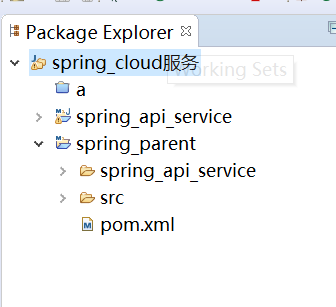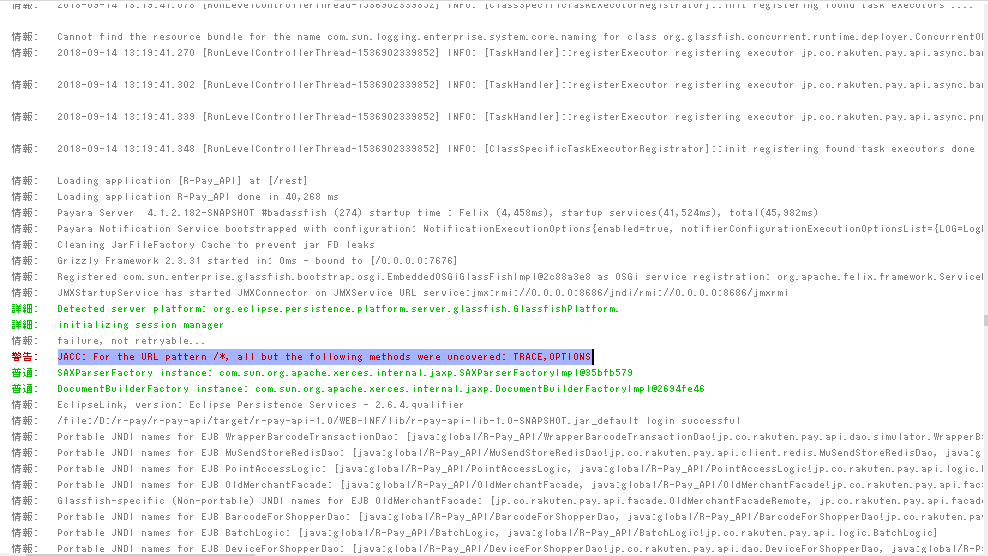可以将文章内容翻译成中文,广告屏蔽插件可能会导致该功能失效(如失效,请关闭广告屏蔽插件后再试):
问题:
Using Git, is there a way to tell it to accept a self signed certificate?
I am using an https server to host a git server but for now the certificate is self signed.
When I try to create the repo there for the first time:
git push origin master -f
I get the error:
error: Cannot access URL
https://the server/git.aspx/PocketReferences/, return code 22
fatal: git-http-push failed
回答1:
To permanently accept a specific certificate
Try http.sslCAPath or http.sslCAInfo. Adam Spiers\'s answer gives some great examples. This is the most secure solution to the question.
To disable TLS/SSL verification for a single git command
try passing -c to git with the proper config variable, or use Flow\'s answer:
git -c http.sslVerify=false clone https://example.com/path/to/git
To disable SSL verification for a specific repository
If the repository is completely under your control, you can try:
git config http.sslVerify false
Disabling TLS(/SSL) certificate verification globally is a terribly insecure practice. Don\'t do it. Do not issue the above command with a --global modifier.
There are quite a few SSL configuration options in git. From the man page of git config:
http.sslVerify
Whether to verify the SSL certificate when fetching or pushing over HTTPS.
Can be overridden by the GIT_SSL_NO_VERIFY environment variable.
http.sslCAInfo
File containing the certificates to verify the peer with when fetching or pushing
over HTTPS. Can be overridden by the GIT_SSL_CAINFO environment variable.
http.sslCAPath
Path containing files with the CA certificates to verify the peer with when
fetching or pushing over HTTPS.
Can be overridden by the GIT_SSL_CAPATH environment variable.
A few other useful SSL configuration options:
http.sslCert
File containing the SSL certificate when fetching or pushing over HTTPS.
Can be overridden by the GIT_SSL_CERT environment variable.
http.sslKey
File containing the SSL private key when fetching or pushing over HTTPS.
Can be overridden by the GIT_SSL_KEY environment variable.
http.sslCertPasswordProtected
Enable git\'s password prompt for the SSL certificate. Otherwise OpenSSL will
prompt the user, possibly many times, if the certificate or private key is encrypted.
Can be overridden by the GIT_SSL_CERT_PASSWORD_PROTECTED environment variable.
回答2:
You can set GIT_SSL_NO_VERIFY to true:
GIT_SSL_NO_VERIFY=true git clone https://example.com/path/to/git
or alternatively configure Git not to verify the connection on the command line:
git -c http.sslVerify=false clone https://example.com/path/to/git
Note that if you don\'t verify SSL/TLS certificates, then you are susceptible to MitM attacks.
回答3:
I\'m not a huge fan of the [EDIT: original versions of the] existing answers, because disabling security checks should be a last resort, not the first solution offered. Even though you cannot trust self-signed certificates on first receipt without some additional method of verification, using the certificate for subsequent git operations at least makes life a lot harder for attacks which only occur after you have downloaded the certificate. In other words, if the certificate you downloaded is genuine, then you\'re good from that point onwards. In contrast, if you simply disable verification then you are wide open to any kind of man-in-the-middle attack at any point.
To give a specific example: the famous repo.or.cz repository provides a self-signed certificate. I can download that file, place it somewhere like /etc/ssl/certs, and then do:
# Initial clone
GIT_SSL_CAINFO=/etc/ssl/certs/rorcz_root_cert.pem \\
git clone https://repo.or.cz/org-mode.git
# Ensure all future interactions with origin remote also work
cd org-mode
git config http.sslCAInfo /etc/ssl/certs/rorcz_root_cert.pem
Note that using local git config here (i.e. without --global) means that this self-signed certificate is only trusted for this particular repository, which is nice. It\'s also nicer than using GIT_SSL_CAPATH since it eliminates the risk of git doing the verification via a different Certificate Authority which could potentially be compromised.
回答4:
Global .gitconfig for Self-Signed Certificate Authorities
For my own and my colleagues\' sake here is how we managed to get self signed certificates to work without disabling sslVerify. Edit your .gitconfig to using git config --global -e add these:
# Specify the scheme and host as a \'context\' that only these settings apply
# Must use Git v1.8.5+ for these contexts to work
[credential \"https://your.domain.com\"]
username = user.name
# Uncomment the credential helper that applies to your platform
# Windows
# helper = manager
# OSX
# helper = osxkeychain
# Linux (in-memory credential helper)
# helper = cache
# Linux (permanent storage credential helper)
# https://askubuntu.com/a/776335/491772
# Specify the scheme and host as a \'context\' that only these settings apply
# Must use Git v1.8.5+ for these contexts to work
[http \"https://your.domain.com\"]
##################################
# Self Signed Server Certificate #
##################################
# MUST be PEM format
# Some situations require both the CAPath AND CAInfo
sslCAInfo = /path/to/selfCA/self-signed-certificate.crt
sslCAPath = /path/to/selfCA/
sslVerify = true
###########################################
# Private Key and Certificate information #
###########################################
# Must be PEM format and include BEGIN CERTIFICATE / END CERTIFICATE,
# not just the BEGIN PRIVATE KEY / END PRIVATE KEY for Git to recognise it.
sslCert = /path/to/privatekey/myprivatecert.pem
# Even if your PEM file is password protected, set this to false.
# Setting this to true always asks for a password even if you don\'t have one.
# When you do have a password, even with this set to false it will prompt anyhow.
sslCertPasswordProtected = 0
References:
- Git Credentials
- Git Credential Store
- Using Gnome Keyring as credential store
- Git Config http.<url>.* Supported from Git v1.8.5
Specify config when git clone-ing
If you need to apply it on a per repo basis, the documentation tells you to just run git config --local in your repo directory. Well that\'s not useful when you haven\'t got the repo cloned locally yet now is it?
You can do the global -> local hokey-pokey by setting your global config as above and then copy those settings to your local repo config once it clones...
OR what you can do is specify config commands at git clone that get applied to the target repo once it is cloned.
# Declare variables to make clone command less verbose
OUR_CA_PATH=/path/to/selfCA/
OUR_CA_FILE=$OUR_CA_PATH/self-signed-certificate.crt
MY_PEM_FILE=/path/to/privatekey/myprivatecert.pem
SELF_SIGN_CONFIG=\"-c http.sslCAPath=$OUR_CA_PATH -c http.sslCAInfo=$OUR_CA_FILE -c http.sslVerify=1 -c http.sslCert=$MY_PEM_FILE -c http.sslCertPasswordProtected=0\"
# With this environment variable defined it makes subsequent clones easier if you need to pull down multiple repos.
git clone $SELF_SIGN_CONFIG https://mygit.server.com/projects/myproject.git myproject/
One Liner
EDIT: See VonC\'s answer that points out a caveat about absolute and relative paths for specific git versions from 2.14.x/2.15 to this one liner
git clone -c http.sslCAPath=\"/path/to/selfCA\" -c http.sslCAInfo=\"/path/to/selfCA/self-signed-certificate.crt\" -c http.sslVerify=1 -c http.sslCert=\"/path/to/privatekey/myprivatecert.pem\" -c http.sslCertPasswordProtected=0 https://mygit.server.com/projects/myproject.git myproject/
CentOS unable to load client key
If you are trying this on CentOS and your .pem file is giving you
unable to load client key: \"-8178 (SEC_ERROR_BAD_KEY)\"
Then you will want this StackOverflow answer about how curl uses NSS instead of Open SSL.
And you\'ll like want to rebuild curl from source:
git clone http://github.com/curl/curl.git curl/
cd curl/
# Need these for ./buildconf
yum install autoconf automake libtool m4 nroff perl -y
#Need these for ./configure
yum install openssl-devel openldap-devel libssh2-devel -y
./buildconf
su # Switch to super user to install into /usr/bin/curl
./configure --with-openssl --with-ldap --with-libssh2 --prefix=/usr/
make
make install
restart computer since libcurl is still in memory as a shared library
Python, pip and conda
Related: How to add a custom CA Root certificate to the CA Store used by Python in Windows?
回答5:
I keep coming across this problem, so have written a script to download the self signed certificate from the server and install it to ~/.gitcerts, then update git-config to point to these certificates. It is stored in global config, so you only need to run it once per remote.
https://github.com/iwonbigbro/tools/blob/master/bin/git-remote-install-cert.sh
回答6:
This answer is excerpted from this article authored by Michael Kauffman.
Use Git for Windows with a corporate SSL certificate
Issue:
If you have a corporate SSL certificate and want to clone your repo from the console or VSCode you get the following error:
fatal: unable to access ‘https://myserver/tfs/DefaultCollection/_git/Proj/’: SSL certificate problem: unable to get local issuer certificate
Solution:
Export the root self-signed Certificate to a file. You can do this from within your browser.
Locate the “ca-bundle.crt” file in your git folder (current version C:\\Program Files\\Git\\usr\\ssl\\certs but is has changed in the past). Copy the file to your user profile. Open it with a text editor like VSCode and add the content of your exported certificate to the end of the file.
Now we have to configure git to use the new file:
git config --global http.sslCAInfo C:/Users/<yourname>/ca-bundle.crt
This will add the following entry to your .gitconfig file in the root of your user profile.
[http]
sslCAInfo = C:/Users/<yourname>/ca-bundle.crt
回答7:
Check your antivirus and firewall settings.
From one day to the other, git did not work anymore. With what is described above, I found that Kaspersky puts a self-signed Anti-virus personal root certificate in the middle. I did not manage to let Git accept that certificate following the instructions above. I gave up on that. What works for me is to disable the feature to Scan encrypted connections.
- Open Kaspersky
- Settings > Additional > Network > Do not scan encrypted connections
After this, git works again with sslVerify enabled.
Note. This is still not satisfying for me, because I would like to have that feature of my Anti-Virus active. In the advanced settings, Kaspersky shows a list of websites that will not work with that feature. Github is not listed as one of them. I will check it at the Kaspersky forum. There seem to be some topics, e.g.
https://forum.kaspersky.com/index.php?/topic/395220-kis-interfering-with-git/&tab=comments#comment-2801211
回答8:
Be careful when you are using one liner using sslKey or sslCert, as in Josh Peak\'s answer:
git clone -c http.sslCAPath=\"/path/to/selfCA\" \\
-c http.sslCAInfo=\"/path/to/selfCA/self-signed-certificate.crt\" \\
-c http.sslVerify=1 \\
-c http.sslCert=\"/path/to/privatekey/myprivatecert.pem\" \\
-c http.sslCertPasswordProtected=0 \\
https://mygit.server.com/projects/myproject.git myproject
Only Git 2.14.x/2.15 (Q3 2015) would be able to interpret a path like ~username/mykey correctly (while it still can interpret an absolute path like /path/to/privatekey).
See commit 8d15496 (20 Jul 2017) by Junio C Hamano (gitster).
Helped-by: Charles Bailey (hashpling).
(Merged by Junio C Hamano -- gitster -- in commit 17b1e1d, 11 Aug 2017)
http.c: http.sslcert and http.sslkey are both pathnames
Back when the modern http_options() codepath was created to parse
various http.* options at 29508e1 (\"Isolate shared HTTP request
functionality\", 2005-11-18, Git 0.99.9k), and then later was corrected for
interation between the multiple configuration files in 7059cd9
(\"http_init(): Fix config file parsing\", 2009-03-09, Git 1.6.3-rc0), we parsed
configuration variables like http.sslkey, http.sslcert as plain
vanilla strings, because git_config_pathname() that understands
\"~[username]/\" prefix did not exist.
Later, we converted some of them (namely, http.sslCAPath and http.sslCAInfo) to use the function, and added variables like http.cookeyFile http.pinnedpubkey to use the function from the beginning. Because of that, these variables all understand \"~[username]/\" prefix.
Make the remaining two variables, http.sslcert and http.sslkey, also
aware of the convention, as they are both clearly pathnames to
files.
回答9:
In the .gitconfig file you can add the below given value to make the self signed cert acceptable
sslCAInfo = /home/XXXX/abc.crt
回答10:
Using 64bit version of Git on Windows, just add the self signed CA certificate into these files :
- C:\\Program Files\\Git\\mingw64\\ssl\\certs\\ca-bundle.crt
- C:\\Program Files\\Git\\mingw64\\ssl\\certs\\ca-bundle.trust.crt
If it is just a server self signed certificate add it into
- C:\\Program Files\\Git\\mingw64\\ssl\\cert.pem
回答11:
I do it like this:
git init
git config --global http.sslVerify false
git clone https://myurl/myrepo.git
回答12:
Run the following command :
git config --global http.sslVerify false



